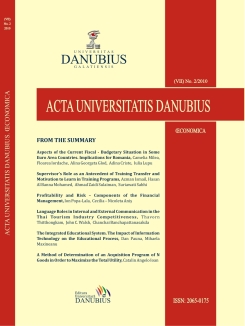Our paper “The Experience Economy in Thai Hotels and Resort
Clusters: The Role of Authentic Food” has been accepted for publication by Acta Universitatis Danubius Oeconomica and will appear in No.3, 2013 at the end of June. Here is the abstract (in the structured format required):
The Experience Economy in Thai Hotels and Resort Clusters: The Role of Authentic Food
Thanan Apivantanaporn & John Walsh
Abstract
Objectives: This paper explores the relevance of authentic Thai food in contributing to the experience economy in Thai hotels and resort clusters.
Prior Work: Although hotels and other tourist institutions in Thailand have been making some sporadic attempts to incorporate specifically Thai food and beverage (F&B) elements into their overall product offering, this has rarely been attempted in a thoughtful and systematic manner, despite the importance of F&B in determining overall levels of customer satisfaction and the importance attached to incorporating ‘Thainess’ into the hotel and tourism industry.
Approach: This paper draws on qualitative research and personal observation undertaken in a wide range of Thai hotels with a view to identifying emergent value-adding clusters in the domestic hospitality sector.
Results: The paper describes and categorizes the uses of Thai F&B currently and identifies shortcomings in industry vision, which leads to recommendations for both hotel and resort managers and also to those responsible for national level tourism development efforts.
Implications: The paper also recognizes the problematic nature of the concepts of ‘authenticity’ in this context and attempts to reconcile differing conceptions.
Value: The paper contributes to improving the quality and value of Thai hotels in the larger tourism industry.
Keywords: hospitality, Thailand, tourism
JEL Classifications: L83, M31

